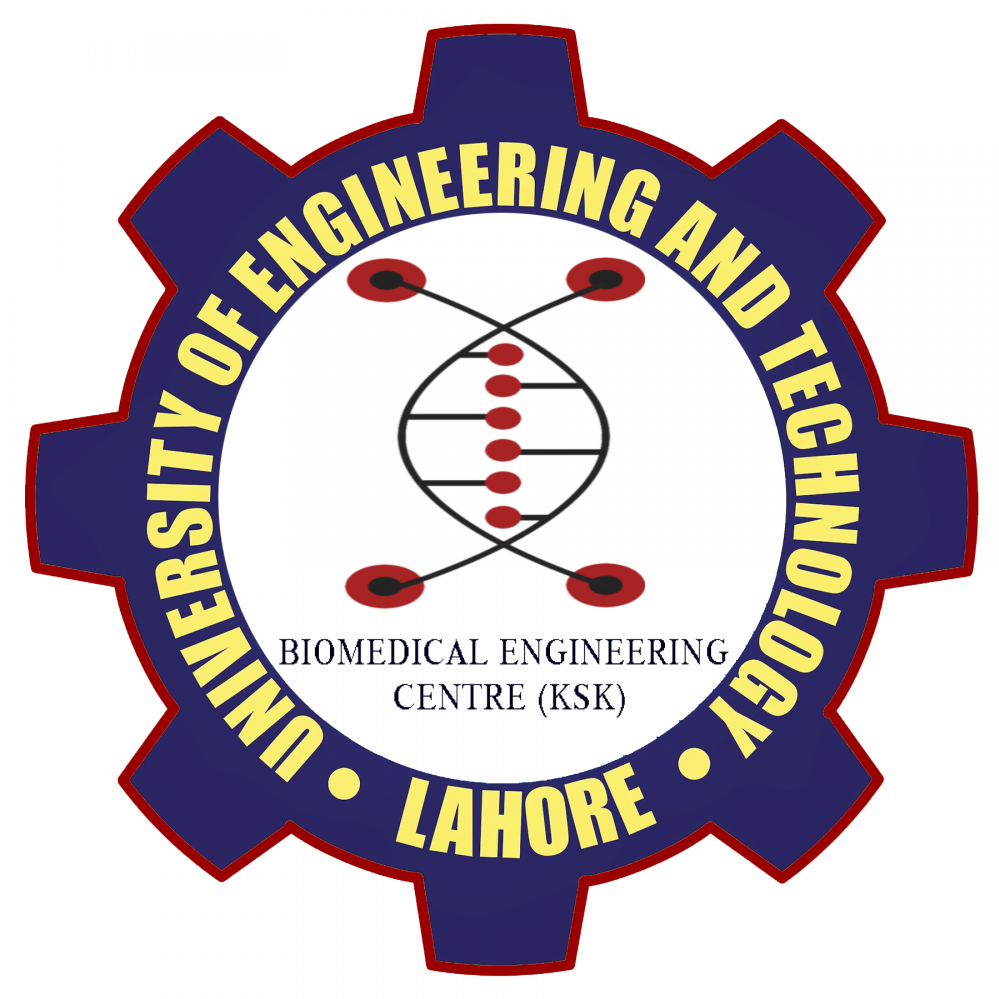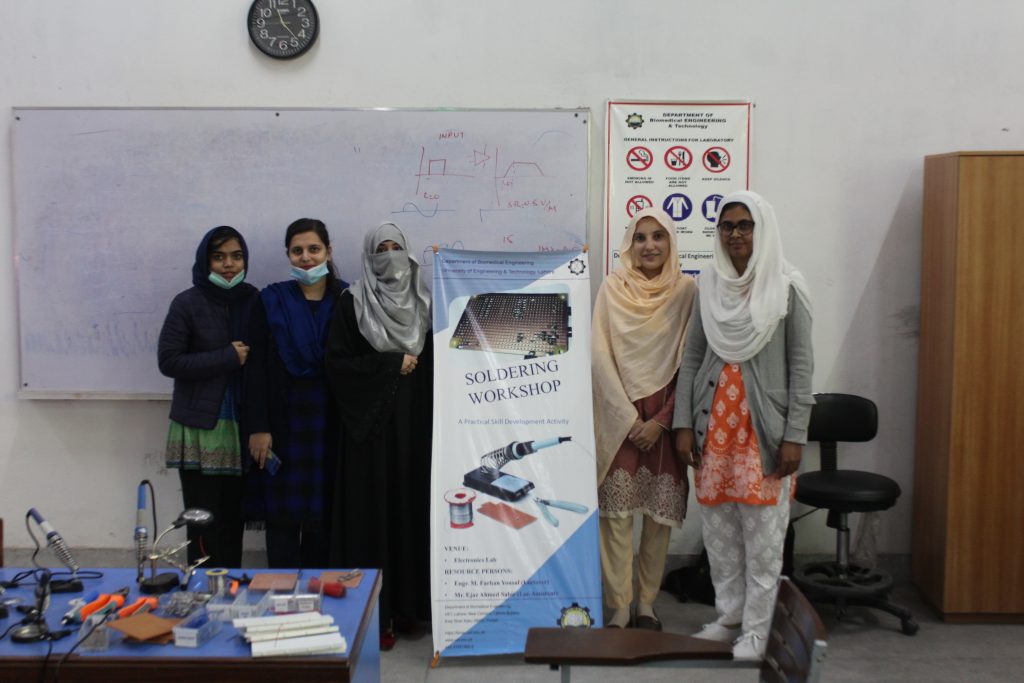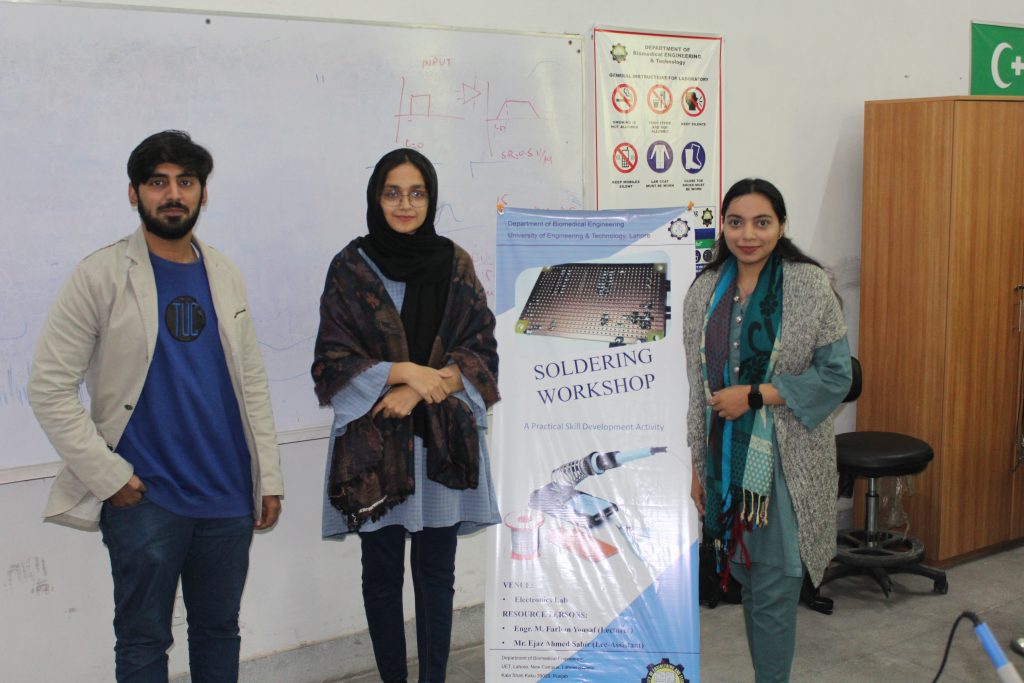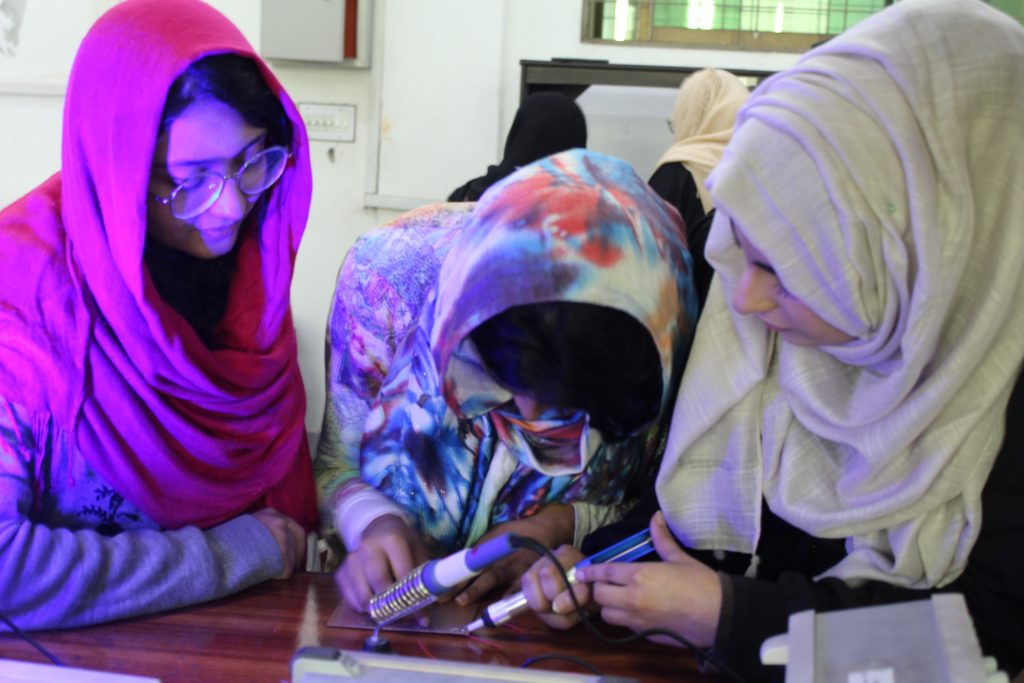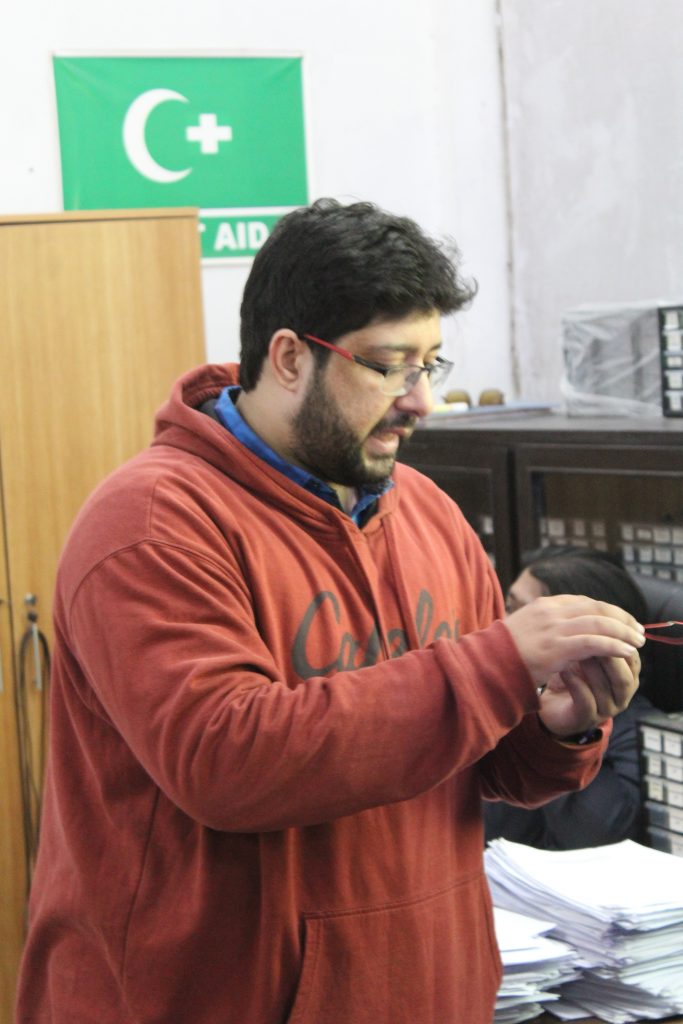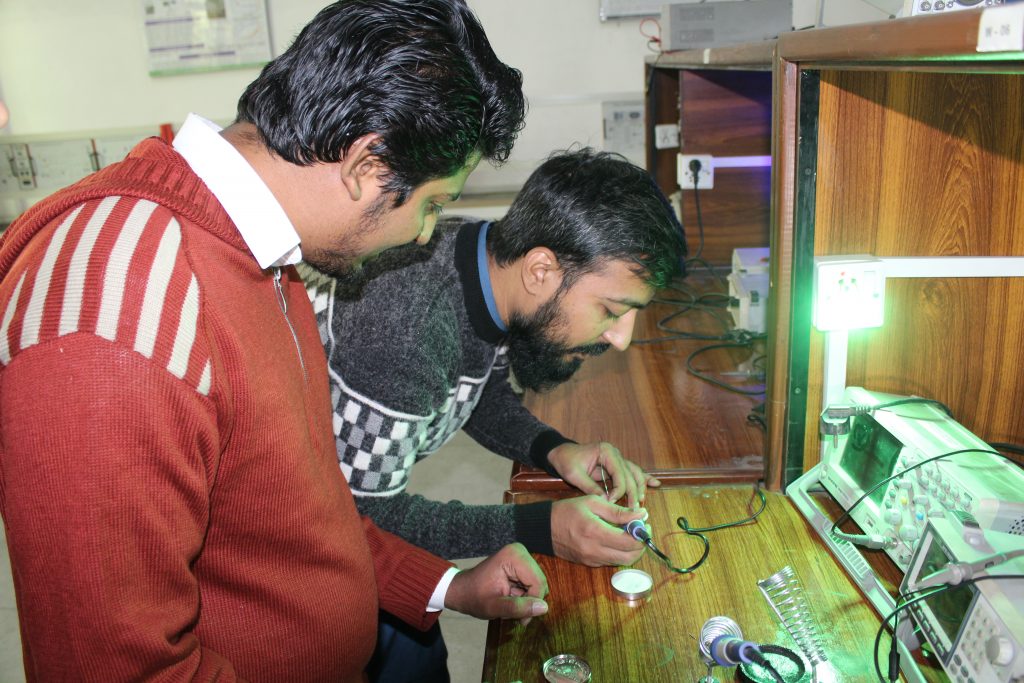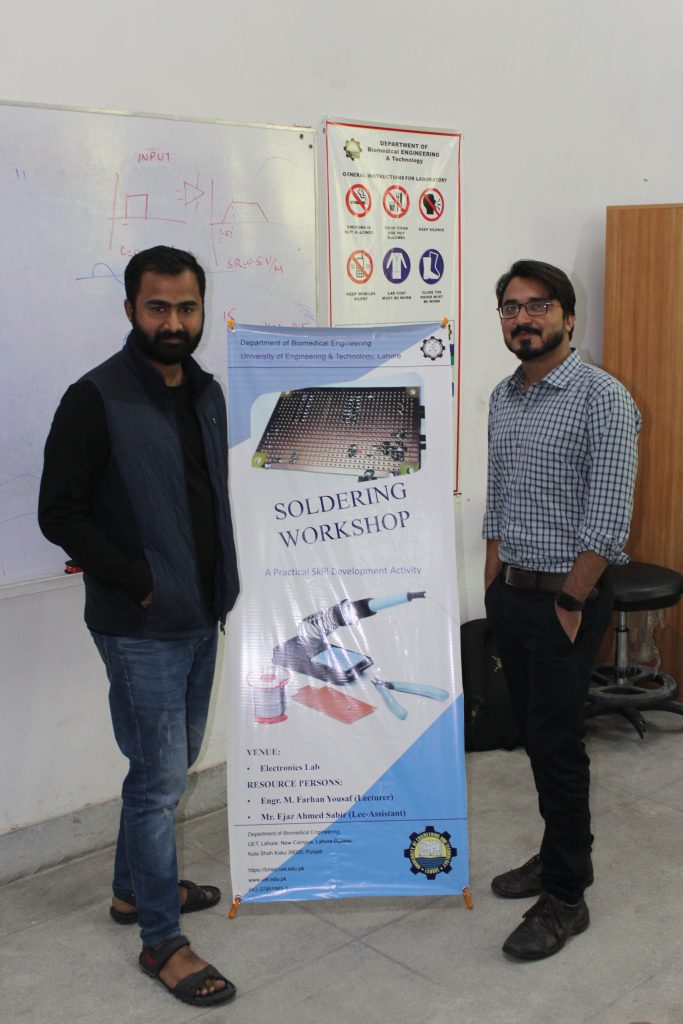Recognizing the importance of soldering skills for an engineer, the Department Of Biomedical Engineering, UET New Campus organized a soldering workshop for “Biomedical Engineering Session 2018” on “24th November 2021”. This productive workshop was conducted by Engr Farhan Yousaf(Lecturer) aided by Mr. Ejaz(Lab staff). Students who participated in the workshop were given certificates as well.
What is Soldering?
Soldering is a method of attaching two or more components by melting a filler metal (solder) into the joint, with the filler metal. Soldering, unlike welding, does not require the work components to be melted. Soldering is used to join distinct components such as resistors, transistors, capacitors, and LEDs on PCB and Vero boards making effective and reliable electrical connections.
How it is done?
Cleaning the components to be joined is the first step in the soldering process. Wrapping the cable around the component is the next stage in mechanically connecting the two components. Finally, by melting some solder alloy on top of the mechanical connection, you can form an electrical connection. To melt the solder and link the components, you’ll need a soldering iron.
Why is soldering Skill important?
Soldering skill is also essential skill for Biomedical Engineers. For the students, to make electronic circuits used for the semester and final year projects, a soldering workshop was necessary. Moreover, Many medical devices require soldering of small components as well. For example, precision solder is required for the assembly of diagnostic and therapeutic catheters.
Students doing soldering under the supervision of Engr.Farhan Yousaf.
